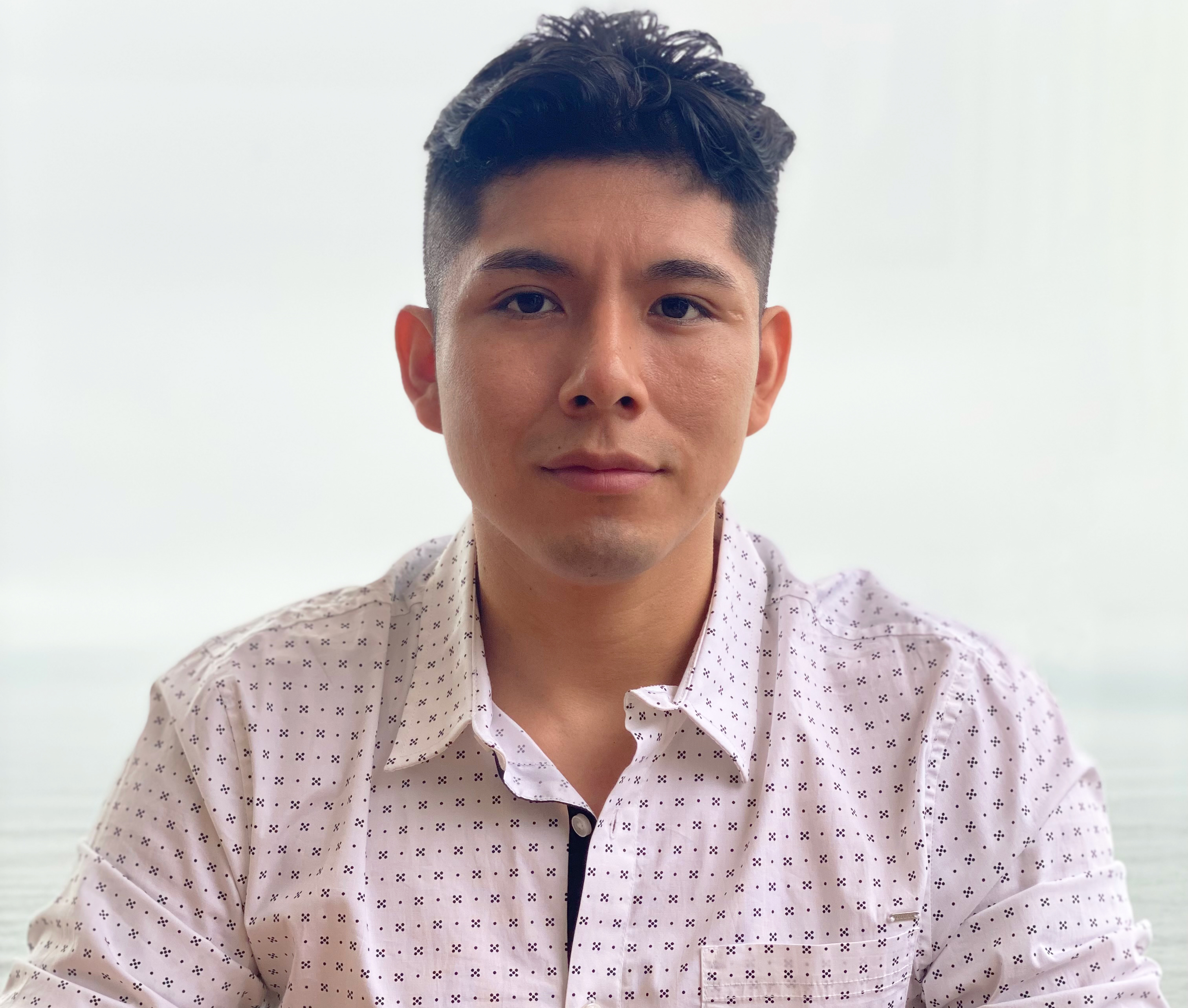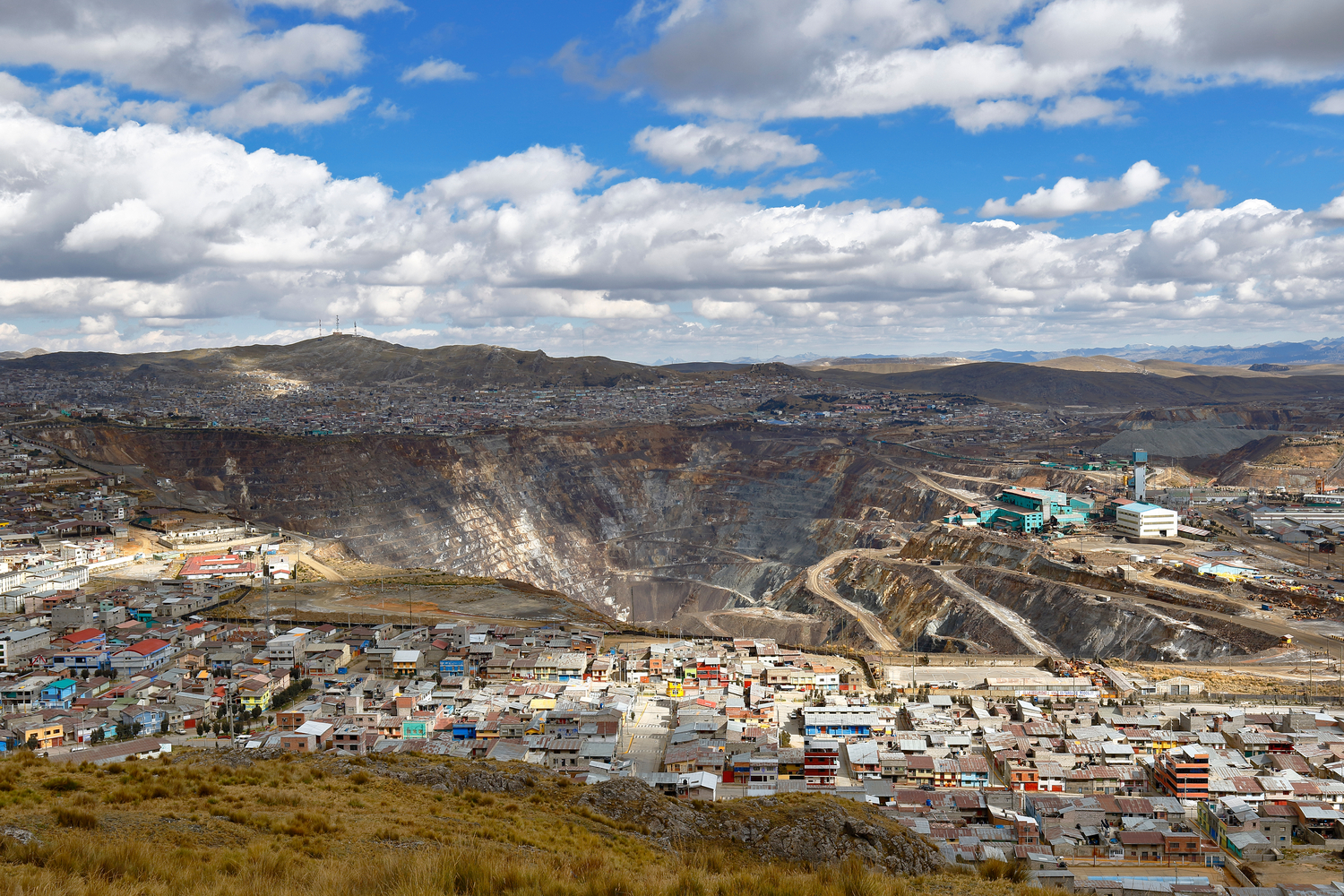Taking Care: Social Equity and Technology
 Bryan Granados
Bryan Granados
When I got stuck in my native country, after the whole world shut down in 2020, I spent a lot of time with my grandmother, whom I hadn’t seen prior to that since I was 15. I always found her sitting in the living room, by the window, knitting and staring outside at the street and traffic.
“What do you see?” I’d ask her.
“People,” she’d say and smile at me. “I like to just look outside and see everyone.”
My grandmother was past her 90s but still lucid and strong. She remembered all her grand- and great-grandchildren’s birthdays. Just a few years ago, she would sometimes disappear for weeks, causing a family-wide panic. We would relay messages from Lima to the provinces, from village to village, asking if anyone had seen her. She was usually found visiting an old friend and would get irritated when told that she couldn’t just disappear without letting anyone know.
She never learned to read or write, so she created a routine around analog time. If the small hand was at a certain place, it meant lunchtime. If it was in another place, it meant dinner prep. Because of this, it has always been difficult to explain to her what I did for a living. I had been working in the tech field for some time when I saw her again in 2020.
“He works with computers, Mom,” was what my father once told her. And I suppose it’s literally true: I do work with computers.
When I was a boy, I used to be envious of people who could trace their lineage back to the Mayflower or to a well-known ancestor. In my case, I can only go back to my great-grandparents, and after that, it’s all myths and stories. But I know that, as far back as the Inca Empire and beyond, my family, on both sides, were composed of Andean peasants creating quiet lives for themselves.
But all that changed with my grandmother, who inculcated in her thirteen children the importance of education. My father passed this onto me and I fully intend to pass on the same values to my own children. The advancement of technology has been the great equalizer in my family. I don’t know who my ancestors were, but I know how to code a basic CRUD app in my sleep, and no pilgrim on the Mayflower knew how to do that.
So it’s a particular pain to me when I see devs trying to gatekeep the tech industry from bootcamp grads. Even worse when some of these devs themselves benefited from the social equity that technology has organically produced. It’s like pulling up the ladder after you’ve climbed it.
There’s a case to be made in that the tech industry needs to be regulated in a similar way as the medical and legal fields. There are definitely way too many people calling themselves devs who don’t know how to git push. But, as I’ve seen time and time again, shutting down people on social media because they made a basic HTML/CSS website and want to celebrate that achievement isn’t in any way conducive toward having that conversation.
Technology is unfortunately becoming a principal driver of inequality. Its high skill ceiling and fanciful tech company evaluations are slowly consolidating wealth to a small percentage of beneficiaries. When we think of social equity, we think of changes at an institutional level. But there is much we as individuals can do ourselves to promote and live out equitable values.
I suppose it sounds tiredly cliched: that it all begins at home. But it has to start with you and I effecting these changes and passing along fair and just values to our offspring. It has to start with a woman who got the news that her husband passed away on the bus, on his way back from Lima after a surgery. It has to start with that woman, who found enough money in her husband’s coat to feed her thirteen children for just a few more days.
No one is self-made. We are all products of those who came before us, whether they were related to us or not. Citizens of a country must have the main voice in tech innovation planning, but we need to give those around us that voice first. It is a tremendous effort, but it honors the sacrifice and suffering of those who deserve to be remembered.
There are people in our lives who have things they want to say to us; there are people in our lives for whom we have words we wish to say to them. Both cases require us to be willing to be vulnerable. We cannot responsibly demand a seat on the table if we are not willing to offer seats to others as well.

My grandmother's village.
I took my grandmother to an Italian restaurant two Sundays ago. I watched her small, withered hands labor against the lasagna she was eating and got my aunt’s attention so she could assist her. Waiters swerved around me, announcing aromas fresh from the kitchen. My grandmother is a few years away from hitting one-hundred years. It boggles my mind to think that this woman has been around for almost a century.
“How’s your food?” I asked her.
She smiled at me and gave me a half-shrug. “I think it would be better with a Coca-Cola.”
My grandmother is a fiend for Coca-Cola, but because of her advanced age, she can only drink it sparingly now. I suppose she loves Coke so much because buying a liter of it used to be a treat for her and my uncles and aunts.
We finished eating, I paid, helped my aunt get her back on the wheelchair, and made our way to the car drop-off area. After the Uber arrived, I gave her a hug and was about to pull away when she grabbed my arm.
“Thank you for visiting me,” she said.
“Of course,” I replied. “Dad’s coming to visit you in January, by the way.”
She perked up. “Really? That’s wonderful.” She looked around for a second. “I don’t think your aunt brought money for the taxi.”
I laughed. “I already paid for it.” I gestured with my phone. “On the app. Don’t worry about it.”
As I watched the Uber pull away, it struck me how strange it is that so many of us are dependent on services and technologies that we do not understand. There’s this bizarre but understandable tech illiteracy among Gen Z now, and it’s because we made tech so accessible to the point that the user doesn’t have to ever need to troubleshoot. I can recall setting up a VLAN and forwarding ports to tunnel traffic to my friend in Finland so we could play Borderlands together. And now I have to explain to my brother how to open a file on Photoshop.
An incredible window of opportunity has been open since the advent of the internet, and that window has only been getting wider and wider. We have seen the gross avarice that has gripped so many tech startup founders. Money doesn’t change people. It just shows you who they truly are. I genuinely worry and have ethical concerns about how we as a species are handling technological advances. We keep straddling an ambivalent prophecy, more often than not looking at a dystopia rather than a future of serenity and peace.
Part of planning for innovation and a great component of social equity demands the deepening of tech literacy. And I believe a slice of that requires us to give junior devs a chance. Every senior dev was once a junior. I, like many others, have once stared at my terminal and codebase and been terrified. I found employment as a dev a couple of months after finishing a bootcamp, and a year later, I was legitimately shocked to see that so many of my classmates hadn’t found a job yet. I considered a lot of them to have way more technical knowledge than I had. They just couldn’t find a company that was willing to give them a chance.
When I was still a junior, I had a mentor who’d been working at Oracle for decades. He became an invaluable help in navigating office politics and helping me advocate for myself, and I attribute my professional growth in part to him. Now I mentor juniors and while it’s my way of paying it forward, it’s also amazingly rewarding to later hear their success stories and celebrate with them. I know something you don’t, and you know something I don’t. We each have something valuable we can share, and in doing that, we can help reduce the entry barrier in our industry by guiding the less-experienced and helping them become more-experienced.
When my grandmother was still young, she would cook massive batches of food to sell outside her town’s soccer stadium. One day, a pot of boiling oil fell and spilled all over her legs. She was hospitalized for a week, and one of my uncles, the eldest boy in the family, visited her every day. This was after my grandfather had passed away.
“Take care of your brothers and sisters,” she told my uncle, while dividing the apple the hospital had given her to eat as a snack. “We are all we have.”
My uncle would leave the hospital and, on his way to school, he would cry and walk slower, so as to not arrive with fresh tears. He told me this story, as he had told me so many family stories, over coffee, during those COVID months.
My grandmother has been holding a window open for almost a hundred years. Her children have each climbed through that window and into new worlds, but she herself has only been able to sit down and knit and observe.
Creating a more equitable world where people from all backgrounds can participate will require sacrifice. And sometimes that will mean holding open a window that we ourselves will never be able to climb through. That’s okay. Though we are all strangers, we are all we have.
A few days ago, I was getting ready for bed and my wife told me, “By the way, I invited your grandmother over. The last time we saw her. I told her she could let us know and we’d send an Uber to pick her up.”
“But she likes to be where she’s at, though,” I said. “Knitting and looking out the window.”
“Well, now she can knit and look out the window here. Our apartment is much higher, so at least she’ll have more to see.”
And I suppose my wife is right. And I suppose, when my grandmother drops by to visit, I can sit next to her and listen to the clicking of her knitting needles. And I suppose we can both look out the window to the world outside, to places that neither of us will be able to reach. And I suppose we will both hold the window open for others and hope that they will do the same.

Lima, Peru
Subscribe to my newsletter
Read articles from Bryan Granados directly inside your inbox. Subscribe to the newsletter, and don't miss out.
Written by

Bryan Granados
Bryan Granados
Hi. I'm a software engineer with a background in digital marketing. I've worked mostly with MERN, full-stack, though I prefer the front-end. I currently work for Valere, a software development agency. It's a pleasure to be in such a diverse and youthful company. We have employees all over the world and specialize in AI and machine learning. Need some career guidance? New to software development? Wanna 1v1 me, snipers only? Hit me up, homie. I'm here for you.